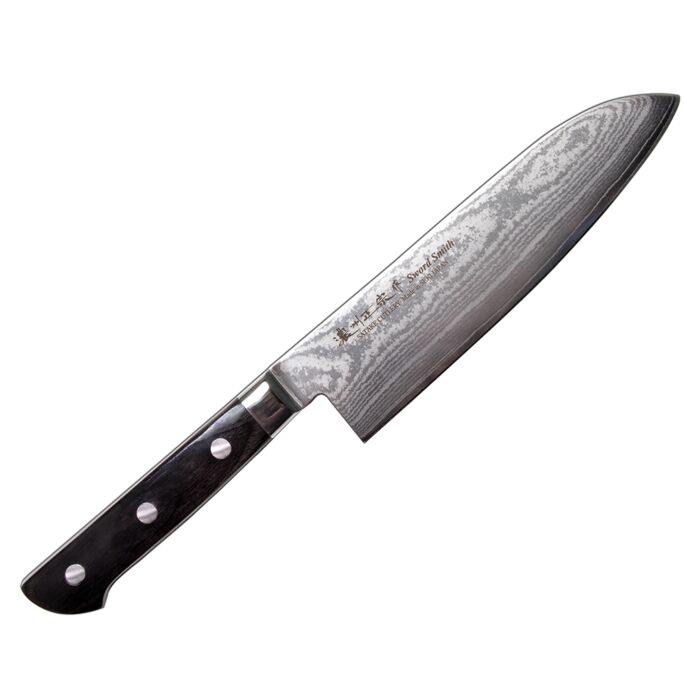Japanese Damascus Kitchen Santoku Knife 7.08"
| SKU | J-219059 |
|---|---|
| Made in | Japan |
| Made by | SATAKE CUTLERY |
| Fill / Material | Blade-69 Layers Forged Damascus Steel (MVS10Cob). Handle: black laminated reinforced wood-Black Pakka Wood |
| Dimensions | Blade length: 7.08" (180 mm) |
| Additional Information | Damascus Steel. For your daily kitchen tasks of chopping, slicing, dicing, and mincing all kinds of meat, fruits, vegetables, and bread. It is suitable for both home and restaurant kitchens. |
| Packaging | gift box |
| Color may vary | Shades and hues you see on the monitor may vary depending on your settings. |
| Care & Use | Hand-wash |
We have teamed up with Satake – Japan's leading blade manufacturer – to create an exclusive line of kitchen knives that combine high-performance blades with an affordable price.
Knives manufacturer SATAKE CUTLERY Seki, Japan. Company was founded in 1947 with the participation of many manufacturers of kitchen tools from the best samples of steel.
The city of Seki is world famous in production of the finest knives. The history of weapons production in Seki dates back to the 13th century, when the famous samurai swords began to be made here.
Santoku knife for your daily kitchen tasks of chopping, slicing, dicing, and mincing all kinds of meat, fruits, vegetables, and bread. It is suitable for both home and restaurant kitchens.
Note: Damascus blades are made from high carbon steel. Despite being of high quality, the blade can rust if left unattended. You must keep the blade clean and dry to avoid rust or dirt. To ensure long-term use - use mineral, olive or any other oil to coat the blade. Dampen a rag or paper towel and wipe the blade generously with it.
Hand wash only! Do not use in dishwasher!
In cases of darkening and deterioration, it is necessary to clean.
Lubricate with a steel knife with thick oil (camellia oil is the best for, castor oil, vaseline). If you don't have these oils, use regular wax (not paraffin wax).
Further, with the help of the finest sandpaper, with light circular motions, used rust or plaque. Oil and fine sandpaper will not scratch knife and restore its original appearance. After cleaning, wipe with a dry towel.
It is important to know how not to use the knife:
- Bend the knife at a significant angle.
- Chop wood with a blade, cut plastic and chop animal bones;
- Use a knife as a construction tool;
- Use a knife for cutting on metal products.






